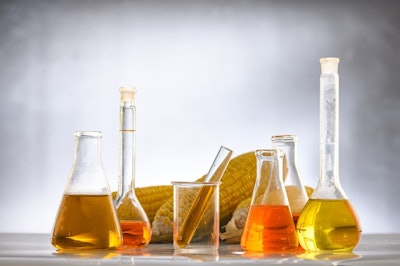
Ethanol and other renewable fuels have received good news from Washington, D.C., over the past few weeks.
First, the Environmental Protection Agency (EPA) has proposed the Renewable Fuel Standard Program for 2023-25 that raises the volumes of ethanol and other renewable fuels.
Then U.S. Representatives Angie Craig (D-Minn.) and Adrian Smith (R-Neb.) introduced new legislation called the Consumer and Fuel Retailer Choice Act of 2022 that will allow higher blends of fuel to be sold year-round.
EPA’s Renewable Fuel Standard Program proposal
For the first time, the EPA has set proposed biofuel volume targets without using those outlined in the Energy Independence and Security Act of 2007 (EISA).
After 2022, the EPA is instructed to now consider a variety of factors specified in the statute, including costs, air quality, climate change, implementation of the program to date, energy security, infrastructure issues, commodity prices, and water quality and supply.
With those factors in mind, the EPA proposal includes an implied 15 billion gallons of conventional ethanol in 2023, the same level as 2022 and an implied 15.25 billion gallons for 2024 and 2025.
Industry associations approve of the proposed rule, particularly the three-year outlook that will provide some certainty for the industry.
“EPA’s proposed rule solidifies a role for the Renewable Fuel Standard in future efforts to reduce carbon emissions and enhance our nation’s energy security,” said Renewable Fuels Association president and CEO Geoff Cooper.
“Once finalized, this rule will significantly accelerate growth and investment in the low-carbon renewable fuels that will help decarbonize our nation’s transportation sector, extend domestic fuel supplies, and bolster the rural economy. By including three years’ worth of RFS volumes, EPA’s proposed rule will finally provide certainty and stability for the entire supply chain," Cooper continues.
"EPA Administrator Michael Regan put the RFS program back on track with the 2022 volume obligations, and today’s proposal builds upon that solid foundation. RFA thanks Administrator Regan and the Biden administration for continuing to make good on their commitment to grow the marketplace for lower-carbon, lower-cost renewable fuels.”
The EPA in requests public input on required volumes of biofuel. The EPA is using this proposal to help shape the Renewable Fuel Standard in the future. Stakeholders are encouraged to comment on how the rule will intersect with the viability of domestic oil refining assets, including merchant refineries, how best to support novel fuels like sustainable aviation fuels and clean hydrogen, and how to account for the new and updated incentives in the Inflation Reduction Act.
The EPA estimates the proposed rule will reduce oil imports by 160,000 to 180,000 barrels/day.
Consumer and Fuel Retailer Choice Act of 2022
The Biden administration lifted the ban on selling E15 blends of gasoline during the summer months last spring, and now Representatives Craig and Smith have introduced House legislation, H.R. 9455, as a companion piece to legislation by Sens. Deb Fischer (R-Neb.) and Amy Klobuchar (D-Minn.)
The rise in gasoline prices last year saw increased demand from consumers for the E15 blend. According to the Department of Energy, the blend is only available 2,300 fueling stations. Part of the reason the blend is not carried at more pumps may be that under the current law, the sale of E15 blend of gasoline cannot be sold from June to September due to violating the Clean Air Act. E10 also violates the Act but was granted a waiver.
The bill introduced in Congress would issue a waiver for ethanol fuel blends higher than E10. Whether the bill can pass congress and get signed into law remains to be seen. But both the bills in the house and the Senate have bipartisan support, not to mention widespread support from the agriculture industry.
“We applaud Reps. Angie Craig and Adrian Smith, along with their bipartisan cosponsors, for introducing new legislation to keep higher ethanol blends accessible, saving consumer money at the pump and enhancing our energy security,” said Tom Haag, president of National Corn Growers Association (NCGA). “This bill provides a commonsense resolution to a long-standing outdated barrier to ensure drivers across the country continue to have year-round access to safe, low-cost, low-emission E15.”
More than 250 organizations and companies, including fuel retailers, petroleum refiners, farm groups, and ethanol producers, sent a letter to congressional leadership, urging them to fast-track the legislation.
.jpg?auto=format%2Ccompress&crop=faces&fit=crop&h=48&q=70&w=48)
















